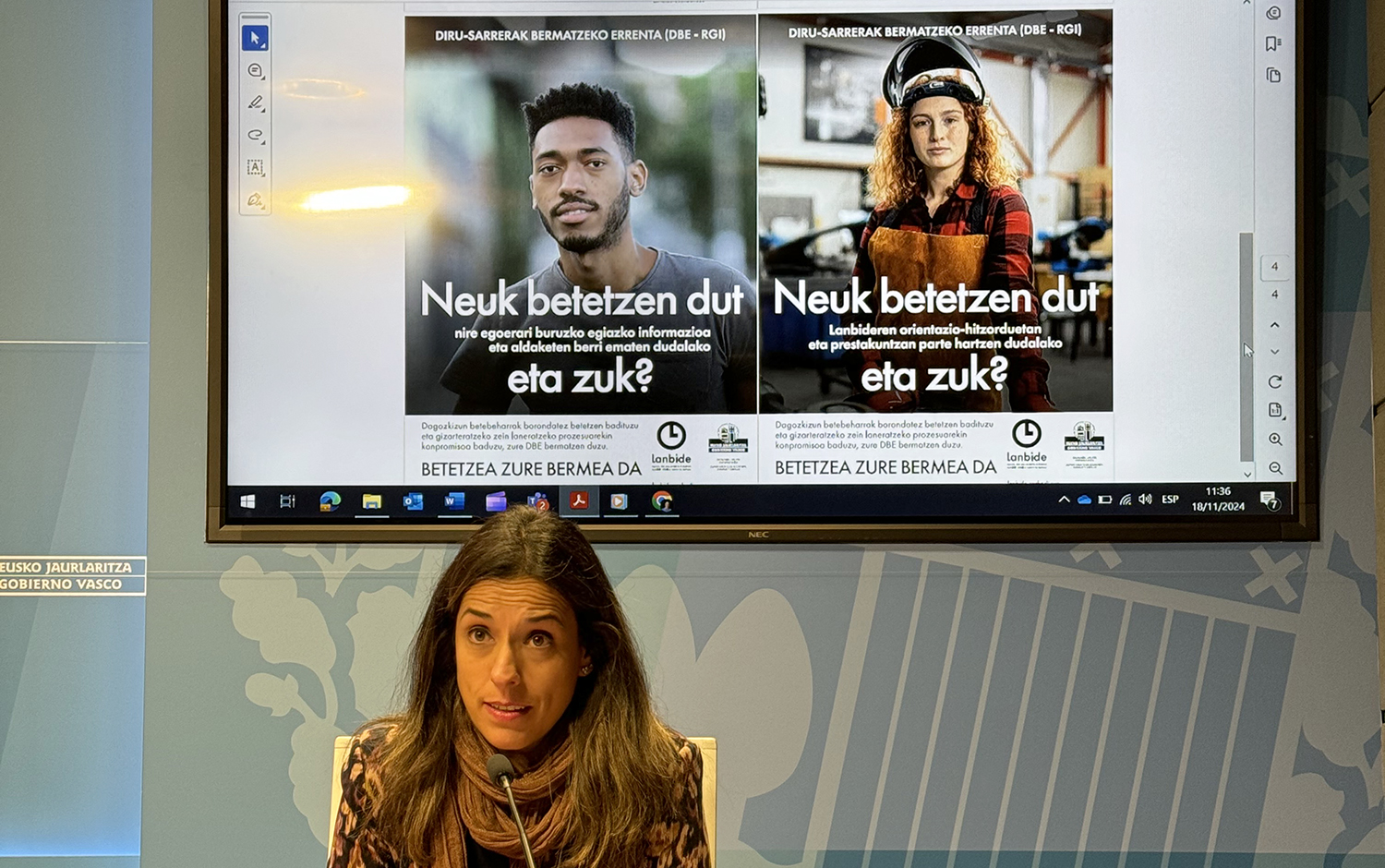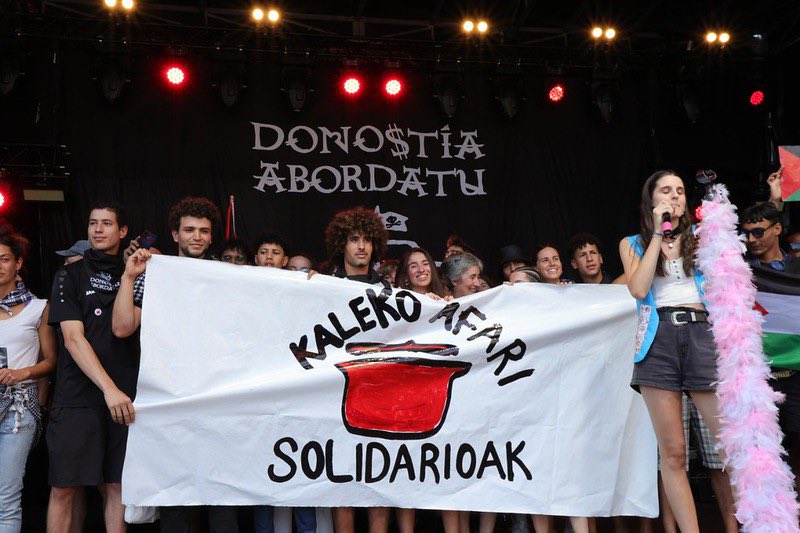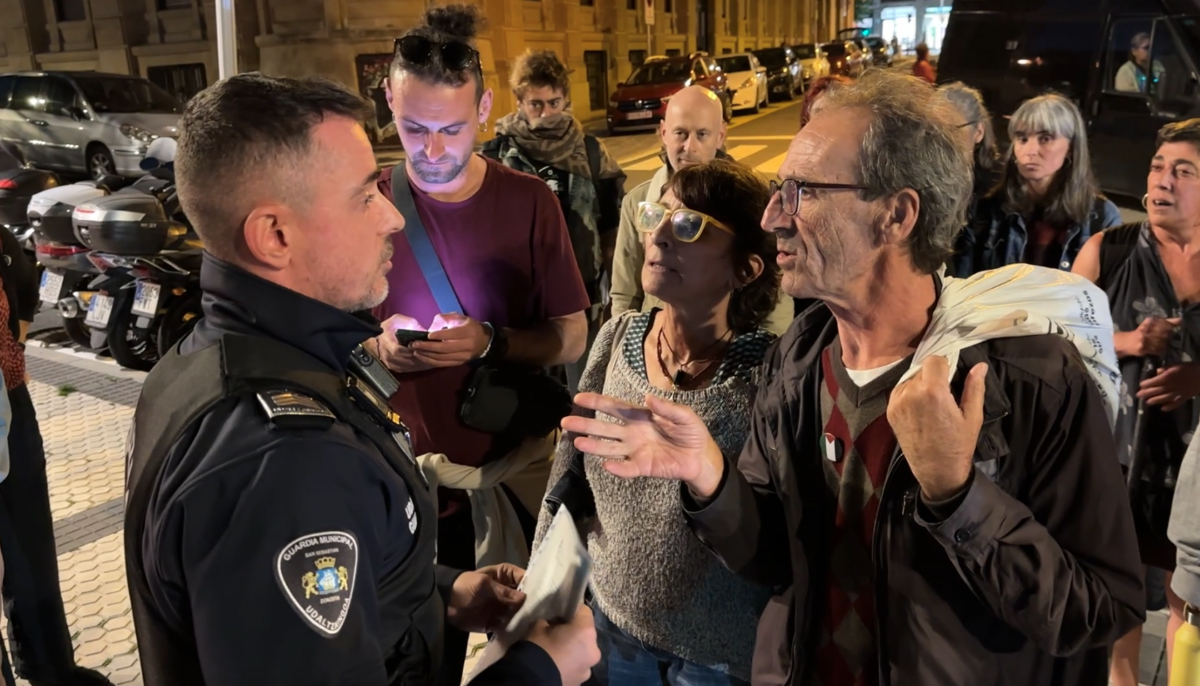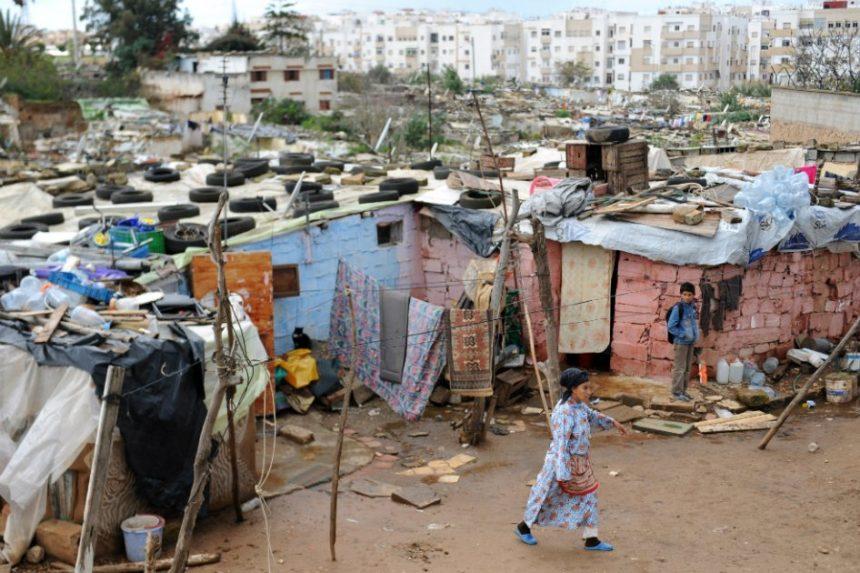They report that in Donostia-San Sebastián more than 300 people live "in extreme exclusion"
- In Donostia-San Sebastian, the Street Solidary Dinners (DINNERS) and Citizen Welcoming Network groups have denounced that more than 300 people live in "situations of poverty and extreme exclusion". “In a city with eight Michelin star restaurants and in the city where the Basque Culinary Center is located, these people survive on the street or, if they are lucky, live in homes without light and water, often without the possibility of hygiene and with great difficulty in getting physical, psychological and emotional health,” they said today at a press conference in Plaza Nueva.

For more than three years, however, KAS volunteers spread over 200 hot dinners every day of the year, at three points in the city. As they have stressed, this work is done "thanks to the effort, money and solidarity of anonymous citizens". However, they also have difficulties, as “on more than one occasion” they are in that work as they have been recorded by the police with a video camera.
Although with their work they try to help those living on the street, they often point out that these dinners do not reach everyone: “We are very concerned about the increase in the number of people coming to three points and we see with sadness that what we have given on many occasions is a single meal of their day, as there is almost no public service for breakfast or lunch, and resources that are not municipal, as their activity is suspended or temporarily closed.” They have therefore asked the mayor, Eneko Goia, to put more resources: “Not only does going to eat pintxos in Donostia, but surviving with a simple dinner costs a lot.”
“Scarce” resources in Donostia
The KAS and the Citizen Welcoming Network consider that the resources offered by the City Hall to people in this situation are "scarce". On the one hand, within the food benefits chapter of the City of Donostia-San Sebastian is the Food (coupon for people to eat in the city bars). “It has a capacity of 65 seats and a waiting list of more than 200 people. This service is clearly exclusive and not enough,” they stressed.
On the other hand, for minimal hygiene, some people get a ticket so they can shower once a week and put a washing machine once a month. “But because the demand is so great, by the middle of the week they all end,” they explained.
In addition, the municipal hostel has five nights in the quarter, but, as you have explained, they are always full, and many times they have to sleep outdoors all night, in order to get a site in the morning.
Finally, they have denounced that the municipal emergency service (SMUS), which among other things has to follow up to get the census, is "absolutely overwhelmed" and there are many people waiting outside. “It’s hard to get a date, and when you get it, they only serve you for 15 minutes,” they say.
Responsibility of the City Hall
According to the above associations, the City Hall of Donostia-San Sebastián should look around and see, for example, that the City Hall of Vitoria-Gasteiz has just opened the Bidelan dining room with 60 seats in two rounds. That is, with 120 meals and 120 dinners, it has added as a novelty the breakfast to take. In this same area, socio-occupational integration courses will also be offered, which comply with the regulations that certify them as certificates of professionalism.
“However, the City Hall of Donostia-San Sebastián considers that the social and reception policies are more than sufficient, since it is not an area where the economic benefits are obtained, an increase in spending cannot be required. The debt of the Social Services establishes a series of minimum services and benefits that the municipalities offer to the citizens and that can be improved within the scope of their competences. The increase in spending on basic social services means the increase of collective well-being and the insertion and integration of people in situations of social exclusion.”
The great police presence has also been mentioned: “It is common to see four or five municipal police or Ertzaintza from any sidewalk of the city, with at least two vehicles, making the intervention simpler, the usual preventive identification... To these preventive racist interventions must be added recently violent evictions, physical and emotional abuses, continuous records, violation of privacy, expropriation of valuable goods, the denunciation of attacks on authority...”
Complaint against a member
As an example, a municipal police officer has been quoted who, two months ago, denounced one of the volunteers who collaborated in the Street Dinners initiative. “After physically assaulting our partner, the Municipal Police has been violently removed from where he slept and charged with an attack on the Municipal Police. This person, like many others, does everything possible to lead a dignified life and gain opportunities in the future, and the response of this city hall is the criminalization and obstruction of all the ways of improving the situation”, they have denounced. They have therefore asked the City Council to withdraw this complaint "as soon as possible".
Finally, they have asked the City Hall of Donostia-San Sebastian and the Provincial Council of Gipuzkoa to invest more money in resources for unprotected people, “an investment for the whole of society”.
Gasteizko Errotako (Koroatze) auzoan izan diren manifestazio "anonimoek" kolokan jarri dute auzokoen arteko elkarbizitza. Azalera atera dituzte ere hauetan parte hartu duten partidu politiko batzuen eta beste kide batzuen izaera faxista eta arrazista.
In this frenetic and vertiginous world in which we live, the social changes that take place little by little seem to us to be sometimes imperceptible, irrelevant or insignificant. That is not the case, however, and we have to be aware of it in order to act wisely. An example of... [+]









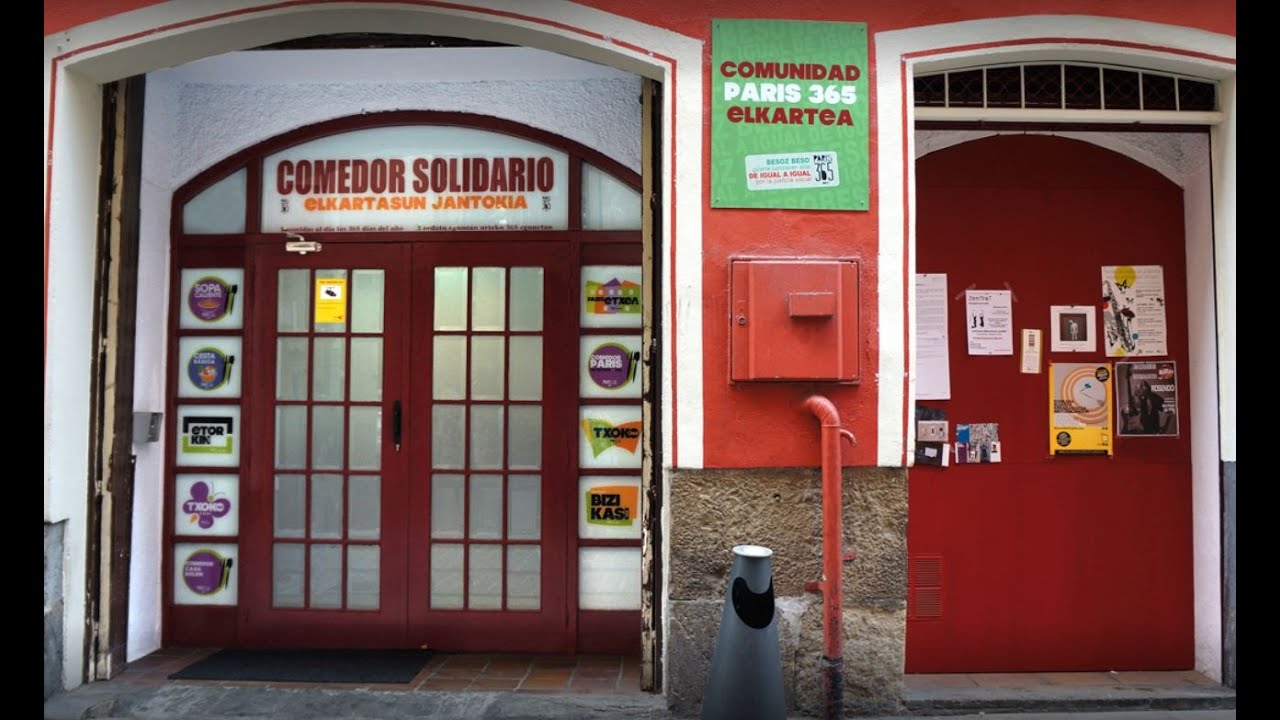

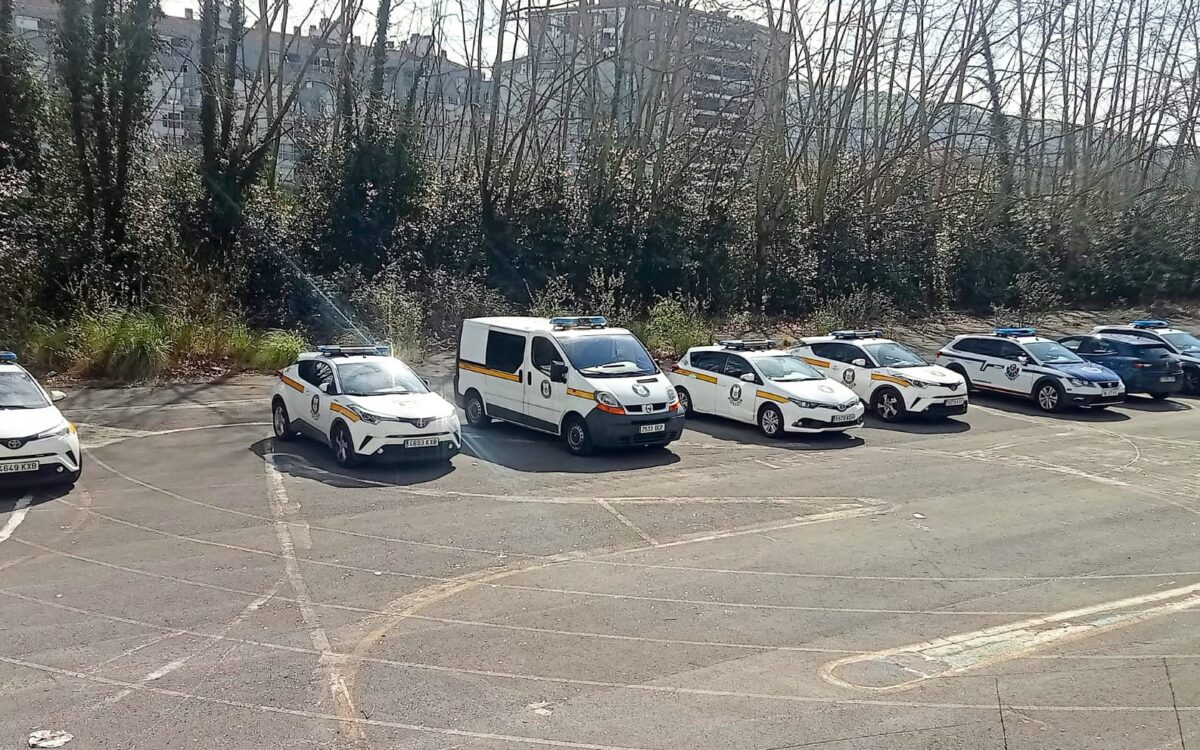

.jpeg)
